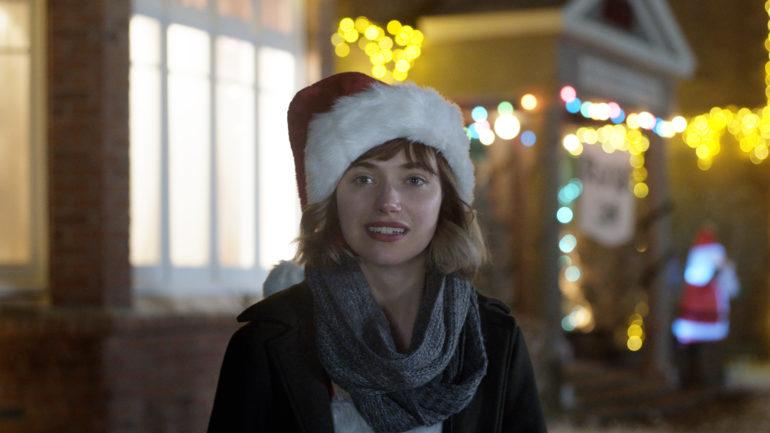‘Black Christmas’: Film Review
By Owen Gleiberman
LOS ANGELES (Variety.com) – “Black Christmas,” a low-budget Canadian horror movie released in 1974, was a slasher thriller with a difference: It was the very first one! Okay, there were more than a few precedents, from “Psycho” (the great-granddaddy of the genre) to “The Last House on the Left” and “The Texas Chain Saw Massacre” to Mario Bava’s “A Bay of Blood.” But “,” directed by the not so horror-minded Bob Clark (who went on to make “Porky’s” and “A Christmas Story”), may have been the first movie to draw the slasher components together, almost by happenstance, into a mythological commercial template: the plot that ritualistically knocks off one pretty young thing after the next; the dark-side-of-a-holiday title; the ending that suggests that the evil will just go on. (You could argue that the entire ethos of franchise culture was born, four years later, in the look-we’ll-do-anything-to-spawn-a-sequel! final shot of “Halloween.”)
That, however, was a thousand slasher movies ago. “Black Christmas,” the new remake of the 1974 film (there was another remake in 2006), is also
Once again, a group of sorority sisters are stalked in their group home by a mysterious killer (or, in this case, killers). But the women in the new “Black Christmas” are more than victims; they have agency — and personality. They’re seniors at Hawthorne University who are spending the last night of fall semester on campus before the holidays, and what’s on their minds are the interlocking ways that men — in frat houses, in classrooms, and through the ages — have built an entire system out of pushing them around.
Imogen Poots, who has always been such a compelling actress, brings a pensive heart and seen-it-all delicacy to the role of Riley, who three years ago was sexually assaulted at a frat party after she had passed out. The film tackles the aspect of frat culture that slides, behaviorally and ideologically, into rape culture: the ritualistic devotion to binge partying where young men try to break down women’s resistance by encouraging them to drink as much as possible, so that — in the minds of the men, at least — the issue of consent is left in the dust. Three years ago, when Riley accused Brian (Ryan McIntyre) of raping her, the system of justice didn’t believe her story — but that’s because of how the system, at college, is built (in reality, if unofficially) around a certain what-happens-at-the-frat-bash-stays-at-the-frat-bash cult of animal-house hedonism. “Bad” behavior, and that includes the crime of rape, gets swept under the beer-soaked carpet.
It’s Riley’s buddy, Kris (Aleyse Shannon), who brings these issues to the fore. Kris is a college activist who’s crusading against “the white-supremacist patriarchy.” She’s got a petition going to fire Professor Gelson, an English teacher played with sly-dog unctuousness by Cary Elwes, who’s got a canonical chip on his shoulder that turns, on occasion, into fits of classroom rage.
It’s easy, and tempting, to imagine a movie that offered a subtler dissection of these issues — like, say, a gender-based variation on “Dear White People.” Yet the elemental women-v.-men aggression of “Black Christmas” meshes well with the film’s landscape of heightened horror. Riley, Kris, and several of their M U Kappa sisters show up at the Founders’ fraternity in holiday elf suits to perform a song-and-dance number, only to turn it into a holly jolly Christmas-carol call-out of rape culture entitled “Up On the Frat House” (“Ho, ho, ho! I didn’t know!”). “Black Christmas” may be the first film outside of Takashi Miike’s “Audition” to offer a fusion of woke sociology and vengeful violence, and the result is an innovative if at times crudely diverting fright flick in which the heroines, and the villains as well, are all playing their part in a larger scheme.
The slasher madness arrives as payback for that accusatory song performance, which Riley sings while staring into Brian’s eyes. (Does he feel guilty? No, he winks.) But the frat already has its male-supremacist insanity thing going. It has updated the hazing rites for the age of #MeToo, so that in a hidden room, we observe slivers of a ceremony in which the pledges wear medieval robes and masks like the ones in “Eyes Wide Shut,” standing before a bust of the college’s founder that literally cries tears of black blood. These dudes are operating out of a belief system — their conviction that the rise of feminine power is phasing them out. “Black Christmas,” in its way, gives hyperbolic vent to a certain 21st-century male paranoia. Especially when the hooded figures start to show up in the shadows of the sorority, like Death from “The Seventh Seal” with better weapons.
People begin to die, but the movie, directed and co-written with utilitarian urgency by Sophia Takal, keeps the women alive as characters. It’s not just that they want to escape. They want to find out who’s doing this to them and why, and when they go back to the frat house to unmask their tormentors, “Black Christmas” turns into an entertainingly over-the-top face-off. You can’t take a movie like this too seriously, but it’s still one of the rare slasher films that offers a holiday from bloodshed for its own sake.

